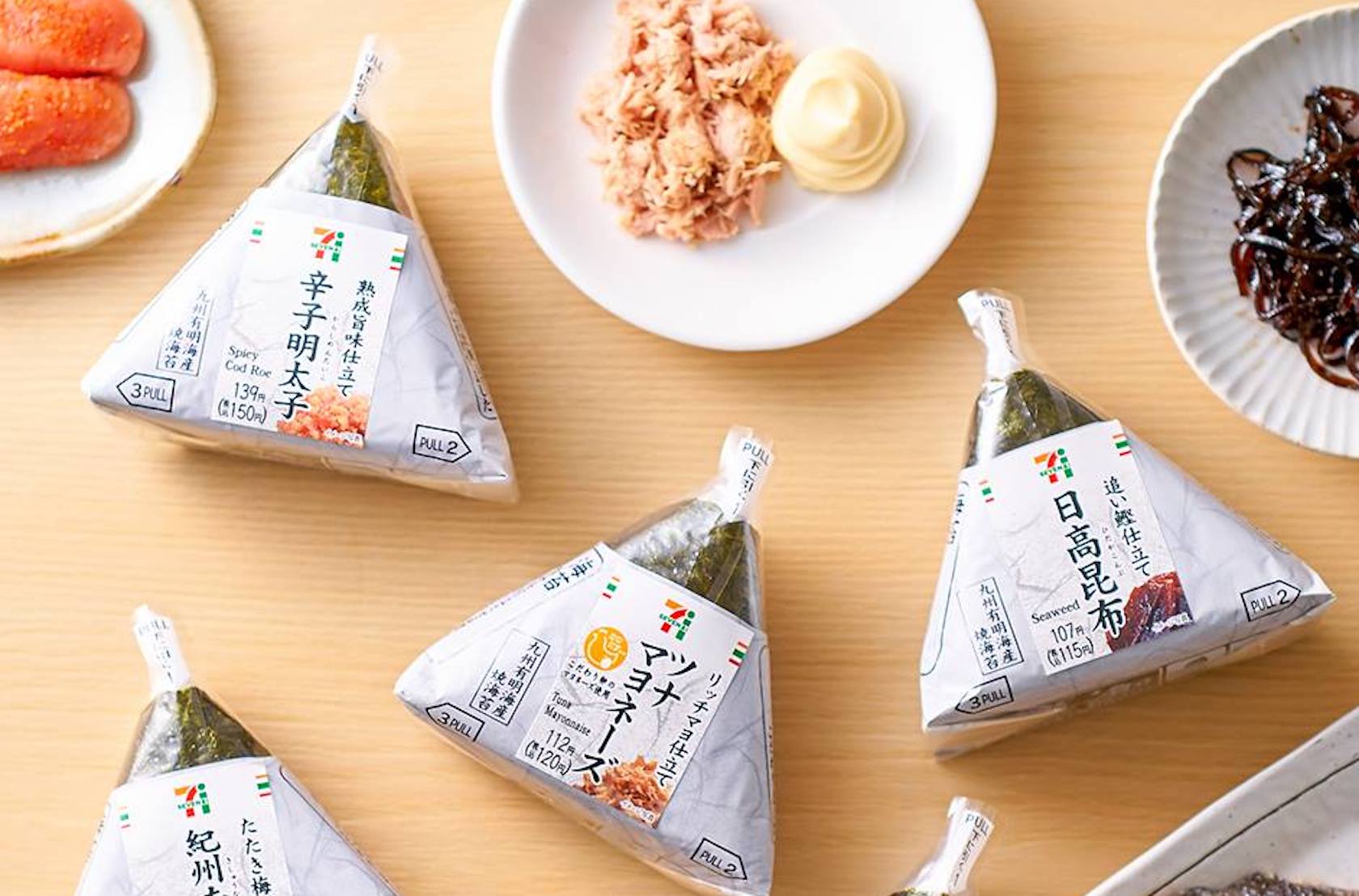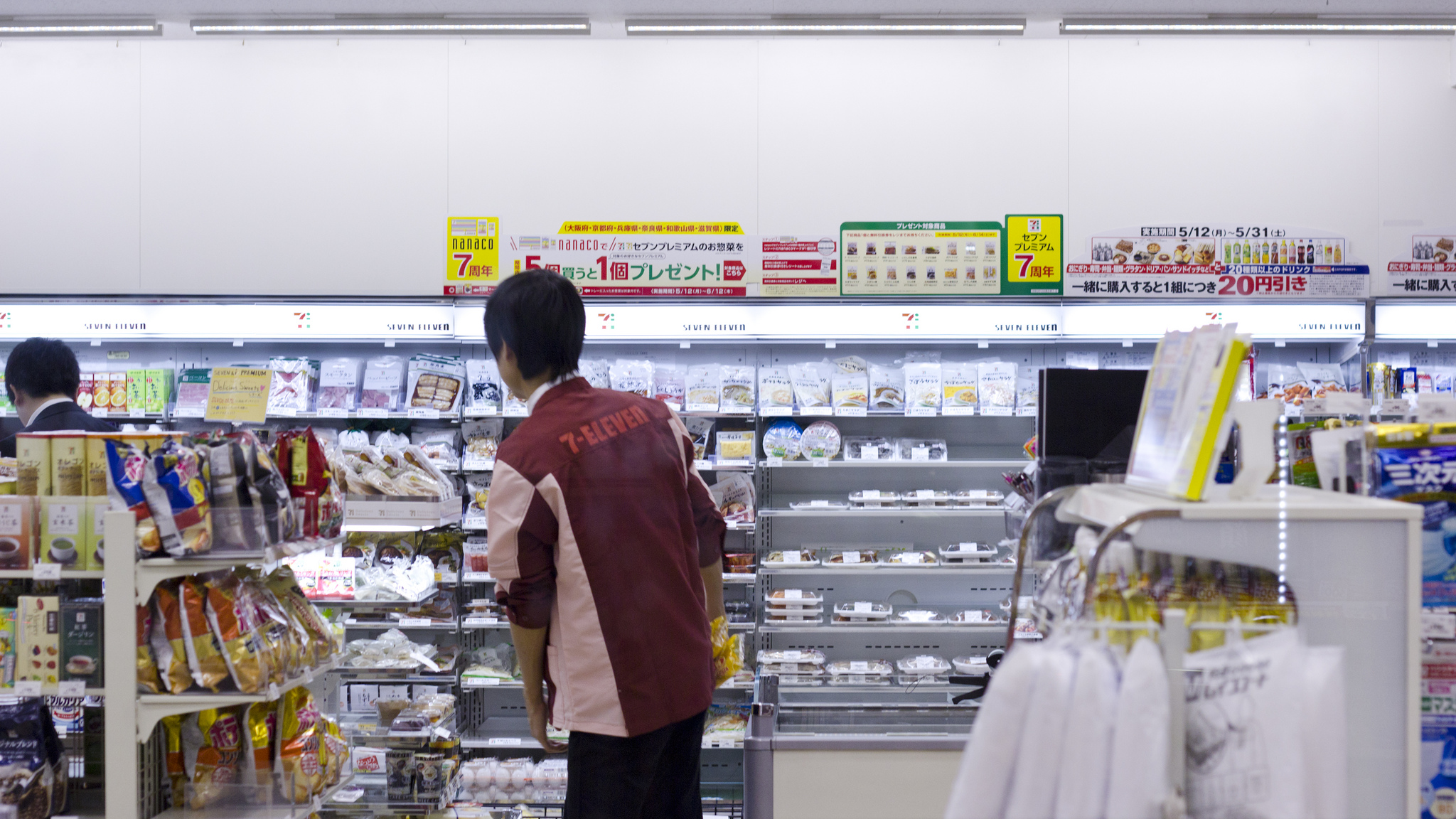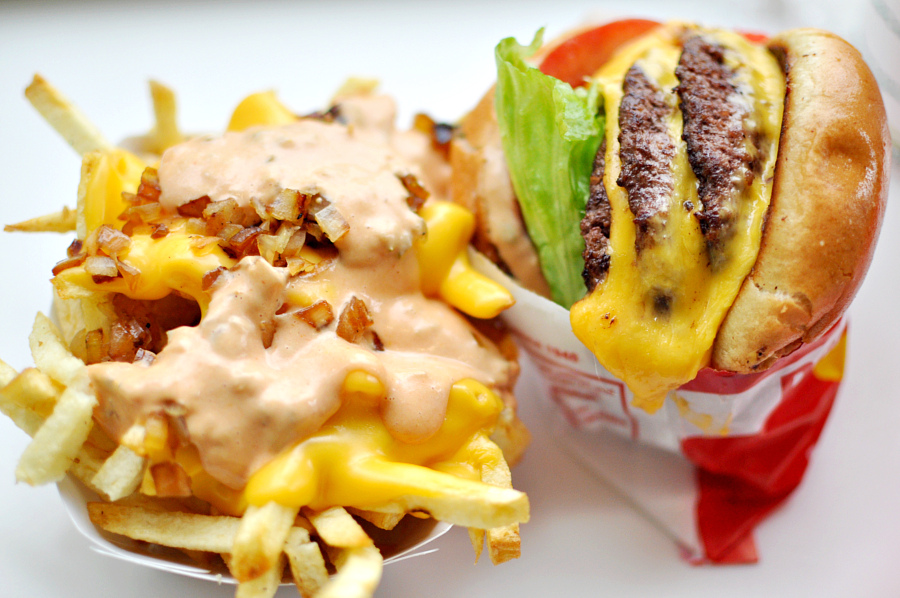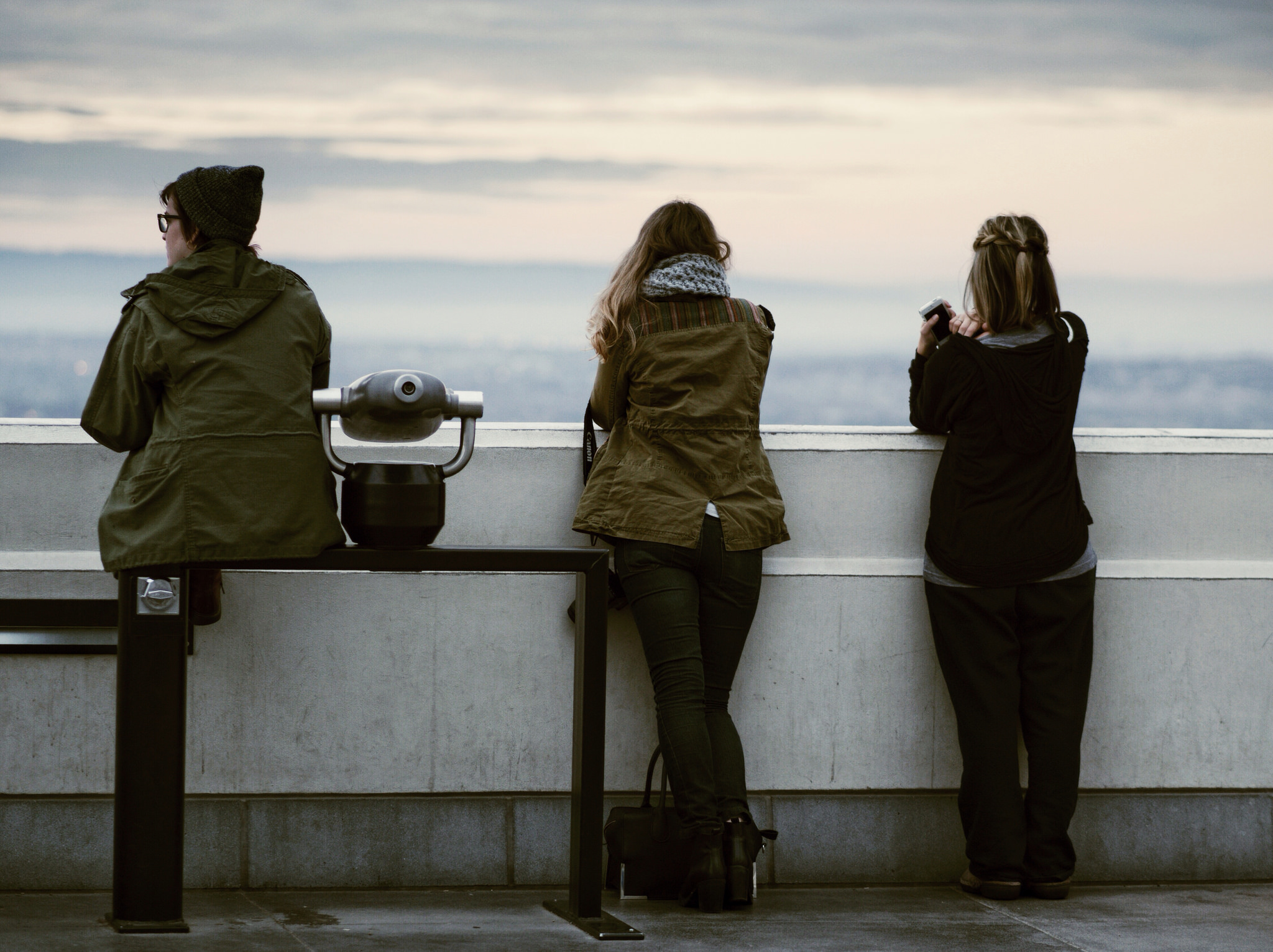What 7-Elevens In Tokyo Taught Me About Japan

Taryn is AWOL's founding editor. She previously edited Beat Magazine…
The obliging descriptors of the stacked metropolis of Tokyo often fall flat. “It’s amazing.” “So busy.” “It’s the future, man.” “You can get cans of hot coffee from the vending machine.” “I saw a really cool dog in a jacket.” Those are the go-to sentences that encompass some of the more obvious cultural contrasts between Australia and Japan, but sometimes the day-to-day delight is in the finer differences of the commonalities we share.
[related_articles]60711,54971,52741[/related_articles]An Australian 7-Eleven store is pretty amazing on free Slurpee day. It’s fine when you need a hangover coke. It’s a pretty awful lunch option. The 7-Elevens and variety of other corner stores (or “konbini”) in Japan elevate the mere notion of convenience. They’re shining beacons of comfort. A one-size-fits-all plug for pretty much any purpose.
Here’s why the 7-Elevens are superior in Tokyo.
They’re everywhere. Absolutely everywhere.
There are 16,664 7-Elevens in Japan, more than double the second most 7-Eleven-dense country in the world, the US. Despite originating in North America, the founding US business entered into bankruptcy protection in 1990 and 7-Eleven Japan bought a 70 percent stake in the US company.
Japan picked up the American idea and stretched its limits, adapting the products and distribution to suit local tastes and redefining an institution in the process. It’s Japan’s top food product retailer and you can’t walk down any street in central Tokyo without the services of the nearest 7-Eleven calling to you like a siren.

You’ll probably eat most of your meals there
Tokyo’s 7-Elevens don’t stock Slurpees. I guess they’re gross and no one wants them? In their place, however, they stock every single other consumable food good you can imagine. Care for an iced coffee? Here are over 20 varieties to choose from. Fancy a tipple post work? Please, observe the selection of beer, sake, champagne, single-malt scotch and wine.
The chain even carries its own brand of wine, Yosemite Road. Got that grumble in your stomach? There’s fresh sushi, salads, sandwiches, prepared meals (with a bank of miraculously fast microwaves to heat them), Bento boxes, ramen, snacks (I recommend the salad-flavoured Pretz or the Melty Kiss, once you’ve had your fill of Pocky), and sparkling soy water. You can pre-order takeaway or home delivery meals from their website 7meal.
[related_articles]25221,59341[/related_articles]Often the ongiri (rice balls with seaweed) is even wrapped separately to preserve freshness and keep the seaweed crispy and the rice moist. You can buy a perfectly cooked unshelled boiled egg that has somehow already had the yolk salted. Don’t bother researching how this is possible. I’ve tried. It’s merely a miracle of modern science.

The customer service seems impeccable, because it is
The konbini is Japanese customer service exemplified. Customers’ ages and gender, as well as tomorrow’s weather forecast, is data that does not go unnoticed. The 7-Elevens in Japan are a bonafide business management case study due to their operating structures. Essentially, all of their point-of-sale information is collected and distributed to some sort of mega 7-Eleven headquarters (which I presume is located in a Robotic Castle guarded by a real life Transformer) for analysis and a near-precise matching of supply to demand, using additional data about the demographic of each area.
[related_articles]57924,59903[/related_articles]Japanese 7-Elevens cater to a lot of people and receive between two to five deliveries of food goods per day with separate factories servicing a bunch of stores within a small area, so rest assured what you’re eating is fresh and made locally. The constant food deliveries mean a super short replenishment cycle. If the majority of the ongiri is sold out by 10am, a fresh batch will be on the shelves ready for the dinner rush. Not to mention, the staff will go out of their way to help you with your needs.

A friend of mine stopped into a 7-Eleven to ask for directions. When the guy behind the counter realised she didn’t understand Japanese, without a moment of hesitation, he put a closed sign on his counter and personally escorted her the two blocks to the onsen (Japanese bathhouse) she was having difficulty locating. I can’t verify this as standard service, but it’s a nice anecdote nonetheless.
[related_articles]57055,55838,8233[/related_articles]Just, everything
There’s no need too great or too small to go neglected at 7-Eleven in Japan. You can pay your phone or utility bills. You can divert your mail and personal deliveries to your local store. You can buy Japanese baseball tickets from the copier machine (you’ll almost certainly need the assistance of the store clerk to do this, though). In winter, you can pick up snap-pack body warming devices with sticky sides that you can attach to your cold extremities (your butt) to keep you nice and toasty under your clothes.

Most stores also have free wi-fi that you can access via login, which means you can happily spend hours in there Snapchatting the superior snacks to your friends in Australia. Why would you ever leave? Oh, I guess to get a Slurpee.
[qantas_widget code=NRT]Check out Qantas flights to Tokyo.[/qantas_widget](Lead image: 7-Eleven Japan / Facebook)
Taryn is AWOL's founding editor. She previously edited Beat Magazine and has contributed to Junkee, Beat and The Brag. She has travelled to over 30 countries and countless cities, leaving plenty of evidence on her Instagram @ninettey.








